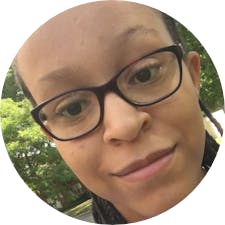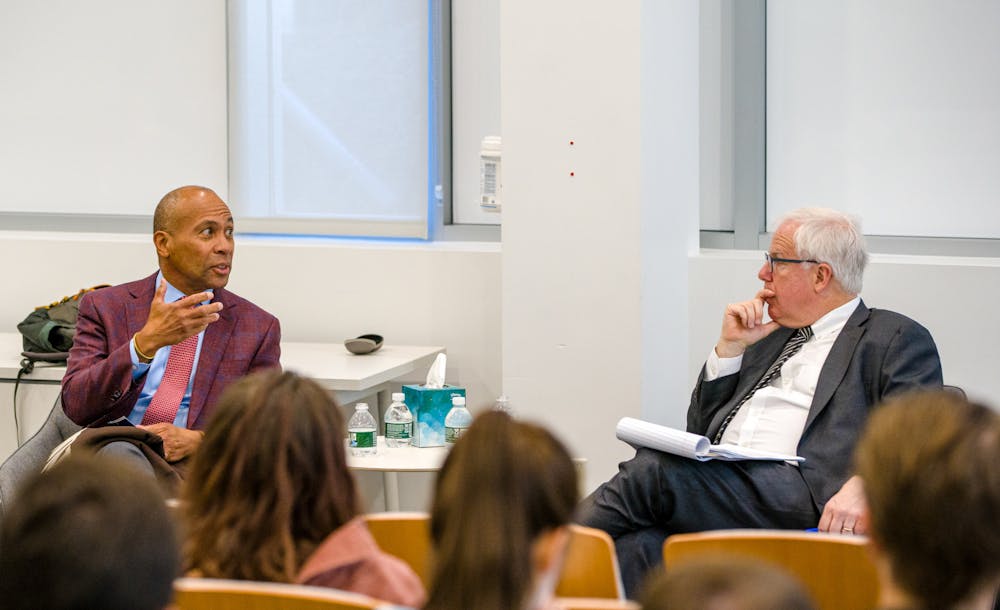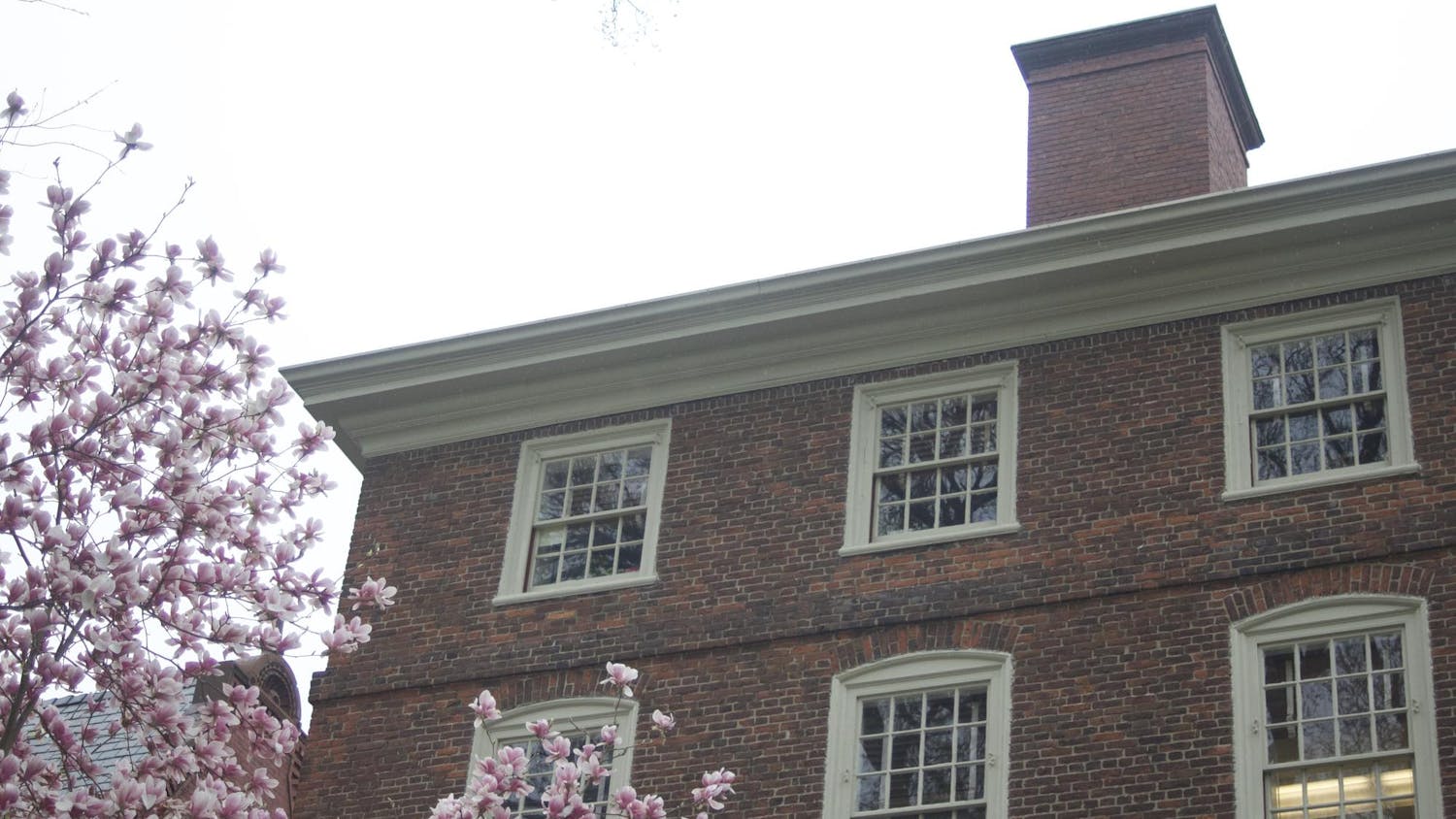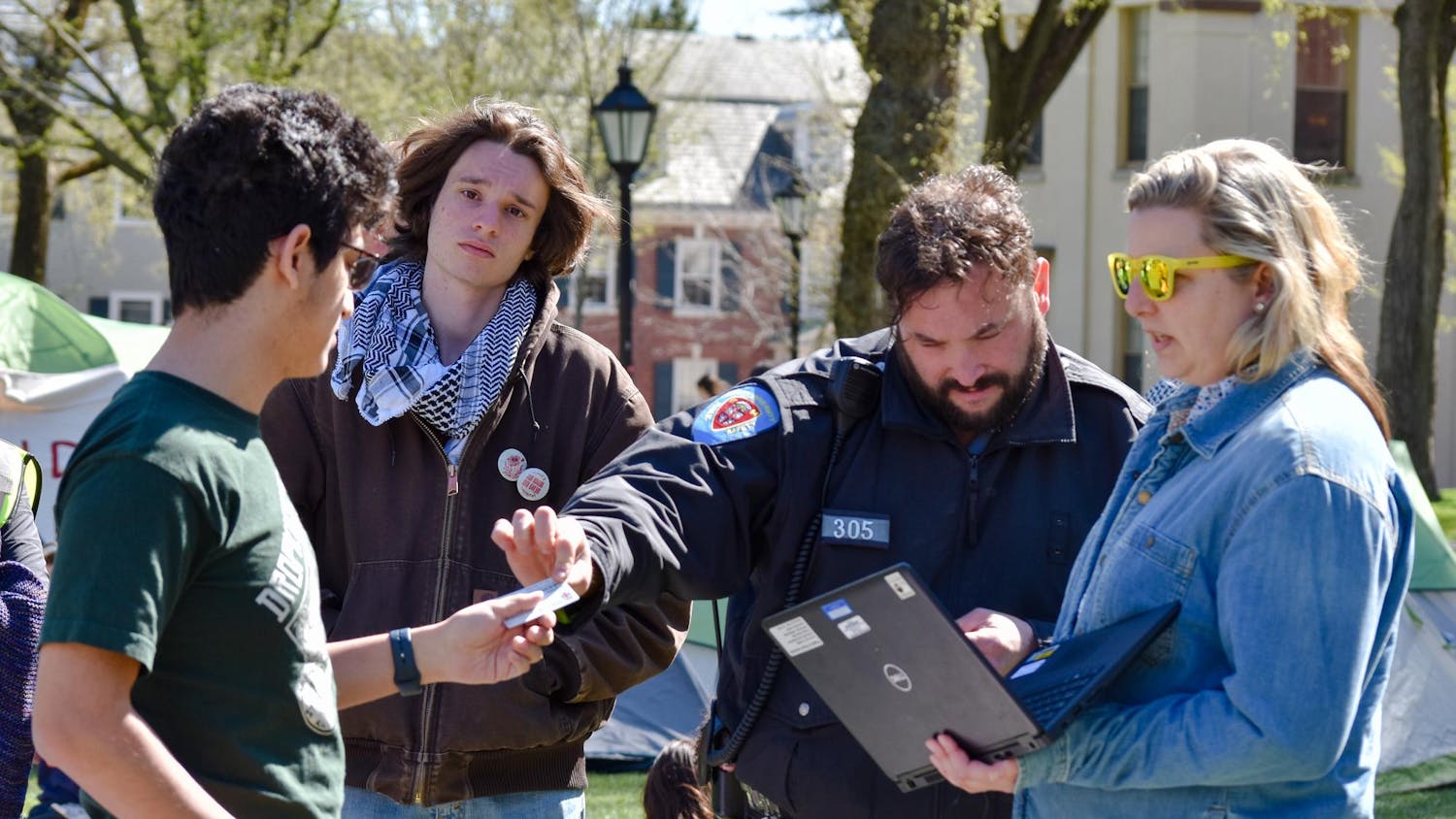Former Massachusetts Governor Deval Patrick called for political unity in a conversation with political science Professor Jeff Robbins ’78 in Stephen Robert ’62 Hall Tuesday afternoon. He also called out racial and economic divisions, as well as the media, for helping to stoke division in the U.S.
Patrick, who was raised on the South Side of Chicago and who attended Harvard for both his undergraduate and law degrees, served as governor of Massachusetts from 2007 to 2015. He was the state’s first Black governor. He briefly ran for president as a Democrat in 2020 and currently serves as a professor at and co-director of the Harvard Kennedy School for Public Leadership as well as a senior advisor at the investment firm Bain Capital.
After an introduction from Robbins, the event’s host and moderator, Patrick reflected on his work and experiences as a politician.
Patrick served as the governor of Massachusetts during the 2013 Boston Marathon bombings, and he recalled the need to bring the community together in the immediate aftermath of the tragedy.
“There was a whole business of recovery and how you hold the community together when the instinct has been in this country” to turn on “everybody who looks like” the perpetrator, Patrick said.
“How you get a community to turn to each other in times like that rather than on each other, I think, is really, really important,” Patrick added.
He then recalled a “great piece of advice” he received from his chief of staff at the time regarding the public updates on the manhunt for the bombers. “When you get up and give these updates, … call out the acts of grace that people are showing completely voluntarily,” he said.
Moving into a discussion about the broader division within American politics and civic life, Patrick said he believes that it is, in part, due to racial divisions.
“Like it or not, there are a different set of expectations, still, for Black leaders in higher office,” he said, reflecting on the Obama administration.
But the differences aren’t just racial or isolated to the public-facing world of politics, he said. According to Patrick, the pandemic exposed a lot of “unfinished business” in regards to economic divisions and inequality, specifically in regards to a lack of economic mobility.
“The American dream has vanished,” he said. “It’s always been hard for folks from my old neighborhood (in Chicago), but it’s pretty much gone for everybody now.”
Patrick also cited “the machine,” a phrase he used to refer to the media, as one of the contributing factors to political and social division in the U.S.
Responding to a question posed by Robbins about the “exceptional appeal” of saying “outrageous” things, Patrick noted the effect of the media in reinforcing ideologies.
The media “spreads (outrageous things) because the machine captures so much personal information about you, much of it without your knowledge,” he explained. “It sends to you what the algorithm has decided you want to hear.”
While Patrick said he believes that the media has played a role in fostering division, he also believes that the scale of division may actually be smaller than the public perceives it to be.
“If you actually get out and talk to people … I think we are less divided than we think we are,” he explained. “The thing that troubles me the most is not just that we are divided, but that it was so easy to divide us, and I think it’s so easy to divide us because we don’t know each other.”
Although he acknowledged the reality of this division, he also struck a more hopeful tone, describing recent activism such as the Black Lives Matter protests of 2020 as “incredibly encouraging.”
“I think there is some good that has and can come out of where we are right now,” he said. “Look at the crowds who showed up in the streets after George Floyd. Everywhere — big cities, small cities, rural communities all around the world — increasingly diverse in every way, overwhelmingly peaceful.”
Patrick also offered a simplified version of what he believes is the ideal relationship between politicians and the media.
“I would like for the fight to not be between the candidate and the news source,” he said. “I would like for the engagement to be between the candidate and the voter.”
Patrick concluded the conversation by referencing the role of grassroots campaigns — the style of campaign he employed in running for governor — in creating that engagement.
“We, in politics, are doing a lot to develop relationships with outlets and sources to deliver our message, and we spend a lot of money on that,” he said. “We could spend a fraction of that money building relationships with people in neighborhoods … and learn a ton about whether the agenda we’re pushing is actually the agenda that matters to people.”
Tommy Whiteley ’22, who attended the discussion, praised Patrick’s outlook.
“I think that he is indicative of a brand of politics that’s dying in America that’s predicated on civility and generally treating the position with respect and a lot of humility,” he said. “Hearing him iterate all of that in person was really meaningful.”

Aniyah Nelson is a University News editor overseeing the undergraduate student life beat. She is a junior from Cleveland, Ohio concentrating in political science and sociology. In her free time, she enjoys listening to music and watching bloopers from The Office.





